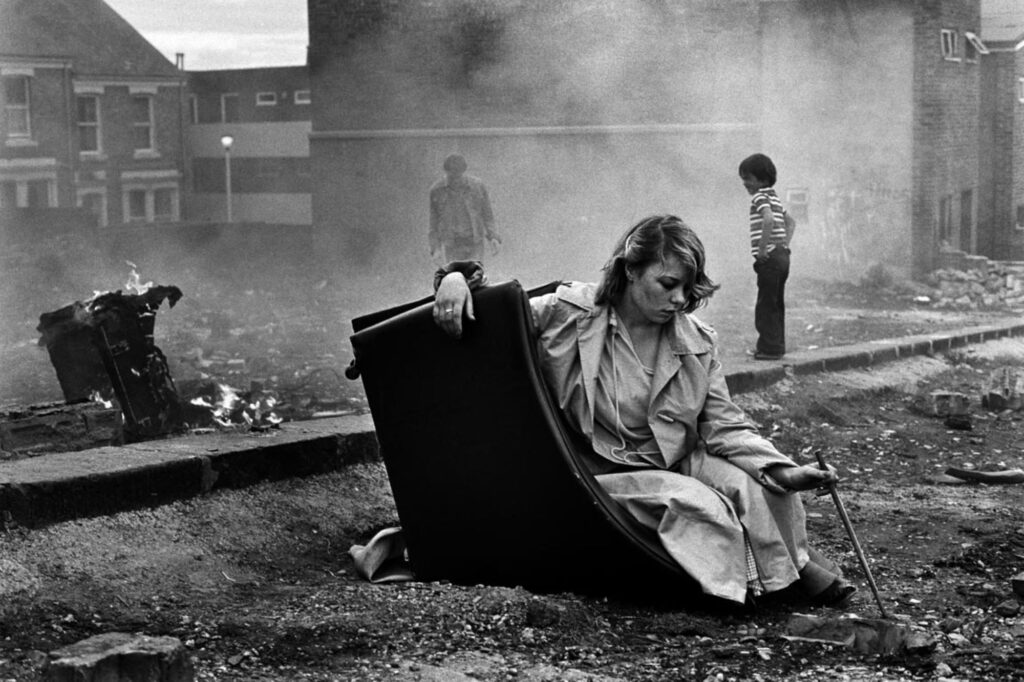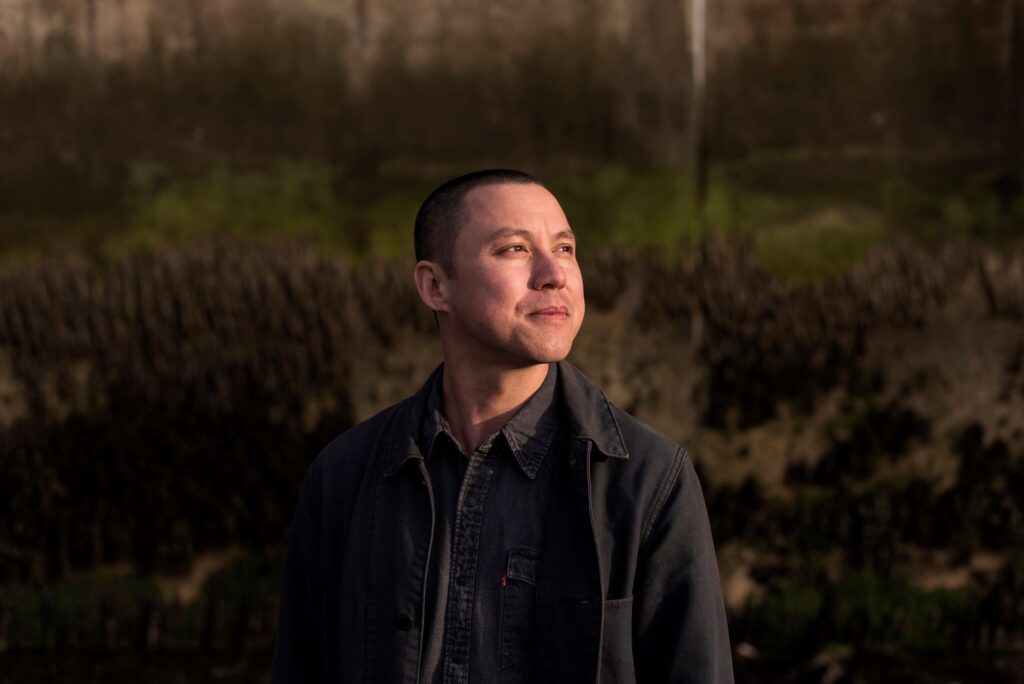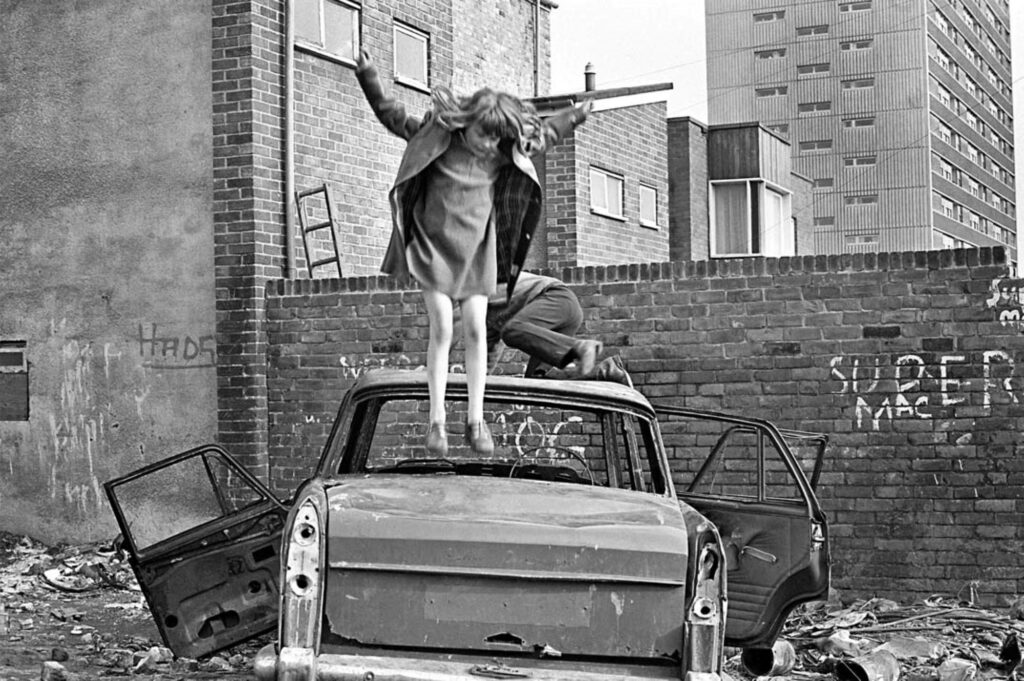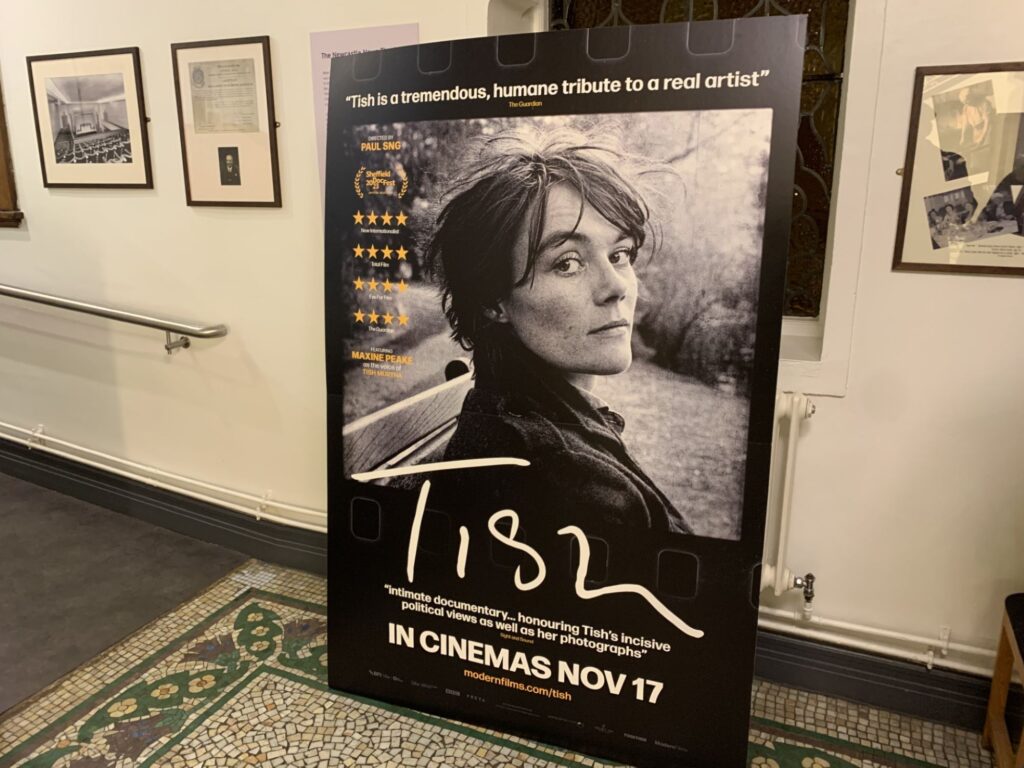
April 1 is the date chosen by the BBC for the screening of the engrossing documentary about photographer Tish Murtha who died in 2013 on the eve of her 57th birthday.
Director Paul Sng, via Zoom, wryly recalls his first reaction to the news. “Are you sure?” But it was no April Fools wind-up.
It’s great for him. “You feel proud,” he says. “But it also feels a bit surreal. I’ve had films on television before but not on the BBC.
“I grew up watching the BBC and still do, so it means a lot. It puts you in the position where a cab driver might have seen your work. I’d love to be somewhere in the world and hear people having a conversation about it, and I’d smile.”
It’s great for Tish’s daughter Ella, too. She assiduously protects and promotes her mother’s legacy, so there are now books, a website and this film; and, as you’ll see if you watch it, Tish Murtha photographs in the collection of Tate Britain.
Significantly, it’s also great for everyone who missed the film during its well-supported autumn run at the Tyneside Cinema.

It traces Tish’s story: born in South Shields, the third of 10 children, but brought up in Elswick, Newcastle; christened Patricia but always ‘Tish’; finding in a derelict house the camera that, despite lacking film, set her on a journey.
Persuaded she had talent, Tish went to study photography in South Wales where she made a deep impression on fellow students and tutors, some of whom you’ll see in the documentary.
With her camera in Elswick she immortalised a landscape of urban decay inhabited by irrepressible youngsters making their own fun.
Youth unemployment was a factor in her work but in the film we also see her photos of trade union members fighting for their jobs as Margaret Thatcher’s axe fell on traditional industries.
And we learn from the film’s narrative, delivered by actress Maxine Peake, that she could express her sense of injustice just as effectively in words as in pictures.
Along with her looks, Ella Murtha has inherited her mother’s pithy eloquence, as you’ll see on the Tish Murtha website where she writes: “My mam was incredible. Determined, funny and fierce, but also very sensitive.
“She had to learn to be tough from a young age; she was very disciplined and would always stand up to bullies, but she was just happy as long as I was happy…”
And so long as she had music and her camera and could afford some film and tabs.
“It was just the two of us, Tish and Ella; we were a team.”

So when it came to making a film, how did an Edinburgh-based Londoner get the gig?
Paul Sng’s last film was about Poly Styrene, late frontwoman of punk band X-Ray Spex; his next, being edited now, is about Irvine Welsh whose first novel was Trainspotting.
He and Ella knew each other a bit online, he recalls. He’d seen Tish’s photographs and Ella had written something for a photography book he’d edited.
“One day I messaged her and asked if she’d be interested in making a documentary about her mum.
- Read more: Review of Tish
“She’d been approached a couple of times and didn’t really want to do it but I said if she ever wanted a chat, she knew where I was.”
The chat eventually happened on the phone during lockdown. It lasted two hours and led to a meeting in person.
“I pitched her an idea and asked what she’d want me to do in a film, or not, and then we approached Jen Corcoran to be our producer and off we went.
“Generally speaking, I find my own projects and then try to get them commissioned or funded. Apparently I said to someone as far back as 2016 that I’d love to make a film about Tish Murtha but then didn’t get to talk to Ella until three or four years later.”

Paul says it’s always challenging to make a feature documentary, especially one like this with multiple elements: Ella meeting people in the here and now; Tish’s black and white photographs; plus an element of reconstruction.
“Very early on, I said I didn’t want to mess around with the photos at all. Tish had a great ability to frame and compose an image and the pictures you see are as she intended them.
“Also, Ella doesn’t go back and use images from contact sheets that Tish hadn’t marked because she knows her mum hadn’t wanted them used for a reason.
“The images are powerful enough on their own. We didn’t zoom in on them or crop them or make them 3D or anything like that. We wanted them to stay intact. That was very important.
- Read more: Heaton repackaged: more grit than glamour?
“As someone who works in moving images, I’m always very respectful of photographers who, in just one frame, have to tell a story. Tish was particularly good at that.
“The one of her brother Glenn jumping from the first floor window onto mattresses tells you so much about the period and childhood. It was a different time.
“The challenge of being respectful to Tish’s work but also presenting something in moving image format was something we thought long and hard about and we worked out certain rules that meant we could blend elements together in a way that felt fluid.”

Having decided to deploy a split screen, says Paul, it was established that the left side would always show the moving image while the right would show stills.
With a smile, he says: “I think we only changed that rule once towards the end when Tony Blair appears.
“At that time Tish wasn’t really taking pictures, so rather than have the moving image of Blair at the Labour conference on the left, we decided to move it to the right and leave the left side empty. That was, I suppose, a not-so-subtle comment on New Labour.”
Paul, who moved to Edinburgh five years ago after a decade in Brighton, confesses to not being wholly familiar with the North East, his impressions of it coloured by Get Carter and Our Friends in the North.
But he says he feels happier in his North, Edinburgh, than he did down south.
He doesn’t envisage going back to London any time soon although it is, he acknowledges, where decisions are made, “not just politically but culturally.”
“Tish went to London but ultimately couldn’t survive there financially (and struggled, latterly, back in the North East, too). But there seems to be a shift away from the idea of London’s streets being paved with gold.
“People are beginning to realise you can function as an artist probably with greater efficiency and maybe with more success if you’re not in London and paying so much rent and competing against so many people.”

Tish was the opening gala film at Sheffield DocFest and went down well at festivals in Leeds, Bath and other places. It was also well received at its recent first international screening, at Thessaloniki in Greece.
Paul says: “I think some of the film’s themes are quite universal in terms of inequality and working class struggle. Motherhood, too, is a big part of the story that connects with an international audience.
“Also, there are lots of people wondering why the UK left the EU.
“I think Tish, in her writings about youth unemployment and in her work, warned there’d be consequences of effectively disenfranchising a generation.
“Although she wasn’t predicting Brexit, among its causes was the disenfranchisement of working class communities, removing the things they were built on, mines and steelworks, and not replacing them with jobs people could have pride in.”
Paul sees a circularity in the film and the issues it touches on.
“A lot of the problems Tish documented and wrote about are still with us. The inequalities never went away, sadly, so this is a film that doesn’t seem out of date.”
But judge for yourself when Tish — funded by Screen Scotland, British Film Institute’s Doc Society Fund and the BBC — is broadcast on BBC Four on Monday, April 1 at 9pm.











